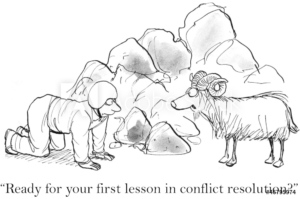Dental Mediation Conciliation & Arbitration
I believe instead of commencing litigation to seek relief, parties are better off to ask a person to mediate, conciliate or arbitrate the dispute.
Brad Wright is an experienced Nationally Accredited Mediator. He has expertise in Commercial, Civil, Family and Health Practitioner areas. Bad also has a Professional Certificate in Arbitration through the University of Adelaide.
Contact Brad for a no charge and obligation free discussion about mediating your dispute rather than litigating it.
If you have a dispute, talk to the other party about mediation, and then contact Brad for options and solutions, including mediation in person at a location suitable to the parties.
About Mediation
Mediation (facilitative) is a process whereby parties can resolve the dispute themselves, by meeting and being assisted by a mediator. If an agreement is reached, a binding deed can be executed. Mediations can take hours or a whole day but are very cost effective in settling disputes and can take away a lot of the stress of litigation. Lawyers can assist the parties and the mediator, but it is not necessary for a lawyer to represent you in many cases.
About Conciliation
Conciliation is also non binding. When Brad Wright steps in as your mediator, he can make suggestions for outcomes and advise you as to the law. This is found very helpful in dental commercial mediations.
About Arbitration
Arbitration is a non-judicial process for the settlement of disputes. This is where an independent third party – an arbitrator – makes a decision that is binding.
The role of an arbitrator is similar to that of a judge, though the procedures can be less formal and an arbitrator is usually an expert in their own right.
The are many advantages to arbitration:
-
- The process can be tailored to suit parties’ particular needs
-
- Arbitrators can be chosen for their expertise
-
- It is confidential
-
- It can be speedier and cheaper than court
-
- There are limited grounds of appeal
- Arbitral awards are binding and enforceable through the courts.
How does it work?
When a decision is reached by an arbitrator, either on a documents only basis, or following hearings that take place at an agreed venue.
For a dispute to be referred to arbitration either:
-
- Both parties will be in agreement for the matter to be referred to arbitration
- There will be an arbitration clause in a contract between the parties that specifies arbitration for dispute resolution.
(The arbitration definition was derived from http://www.ciarb.org/dispute-appointment-service/arbitration/what-is-arbitration)

